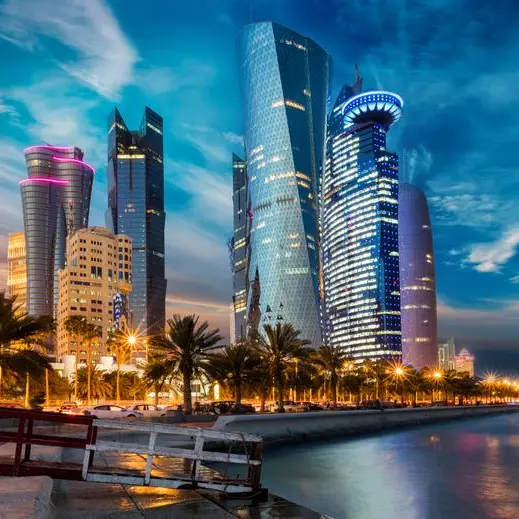PHOTO
Going plant-based and other healthy eating trends are showing no signs of slowing down, not even during Ramadan, when many would normally opt for more traditional fare.
The global health and wellness market reached $3.31 billion in value in 2020 and is expected to hit $4.24 billion by 2026, which represents a compound annual growth rate of 4.1 percent over the forecast period, according to a recent report by Research And Markets.
“As consumers spend more time at home due to ongoing COVID-19 restrictions even during Ramadan, many are cooking from scratch and are keen to experiment with new recipes and food products to replace the restaurant or even travel experience,” says Monique Naval, a senior analyst at Euromonitor.
“Plant-based alternatives and healthy variants often inspire these new home-cooking activities as health has become a top priority for consumers.”
Given this renewed focus on healthy nourishment, food businesses are bringing to market products that help consumers stay in good health.
PLANT-BASED FOOD GRABS THE SPOTLIGHT
Aisha Bin Brook, founder of Treat Me Gluten Free, developed her product line in the UAE in 2018 after experiencing first-hand the benefits of a gluten-free diet. The brand offers vegan, organic, and gluten-free mixes of popular dishes such as pancakes and logaimat (an Emirati dessert). Treat Me Gluten Free has experienced steady growth since its launch.
“I have noticed higher demand compared to 2019,” says Bin Brook. “Despite the difficulty of the pandemic, we had a massive order for our products, especially at the beginning. Every Ramadan, we have high demand for our logaimat mix. It’s our top-selling item of all time. I can see an increased interest in a healthy lifestyle through food and every aspect of life.”
Plant-based foods are also commanding strong interest from consumers, according to Naval, who expects the health benefits and sustainability associated with such products to sustain sales growth in the future.
Thomas Ellis, founder of Dubai-based Plant Power, achieved instant success when he launched his vegetarian meal plan business more than three years ago.
“In 2017, there was a wave of plant-based movements, and we thought if we don’t do something now, we’ll be left in the dust,” he says. “We have seen steady growth and average uptake since then, reaching more diverse pockets of the emirates.”
Ellis expects this focus on healthy food to continue, as eating healthy makes people feel good about their physical wellbeing as well as that of the environment. Fast-food companies are also adding more plant-based options to their menus, making them more sustainable and economical.
“Many fast-food chains are now realising that the plant-based movement is not to be shunned. They see an alternative way to supply healthier food options,” Ellis adds.
For example, in 2019, BurgerFuel UAE launched its vegan Beyond Burger, and last year, Burger King brought its plant-based burger to the UAE.
Meanwhile, McDonald is reportedly in the process of testing its upcoming McPlant burger, which will also use Beyond Meat. Saudi Arabia’s KBW Ventures is an investor in Beyond Meat.
Local frozen food manufacturers are embracing the movement as well. In January, the UAE-based Al Islami Foods unveiled its own plant-based burger.
ADAPTING IN MORE WAYS THAN ONE
Khalid Al Zarooni and Sam Sayadan, who launched their paleo restaurant The Cycle Bistro in Dubai in 2013, have also witnessed a change in consumers’ appetite.
“What I see is that the knowledge people have about clean and healthy eating has gone mainstream. This is largely due to social media, food documentaries and so on. Consumers today are more educated about health, and they’re increasingly looking for health solutions from suppliers like us,” says Al Zarooni.
As COVID-19 restrictions continue, restaurants are finding new ways to adapt. For The Cycle Bistro, this process includes making the menu more suitable for delivery and increasing the brand’s presence on delivery platforms. As a result, the business has seen an uptick in takeout orders and meal plans even during Ramadan.
While the pandemic may have taken its toll on the restaurant business, Al Zarooni is optimistic about the future.
“The health and wellness industry is growing,” he says. “If you have a good chef and good food, no matter how big or small the restaurant, people will come to it.
“Organic products used to only be sold in organic cafés; now they are sold in supermarkets. Even mainstream restaurants are including healthy food options in their menu. Awareness is growing, and so is the trend for healthy eating.”
(Reporting by May El Habachi with inputs from Rachel McArthur; editing by Seban Scaria)
Disclaimer: This article is provided for informational purposes only. The content does not provide tax, legal or investment advice or opinion regarding the suitability, value or profitability of any particular security, portfolio or investment strategy. Read our full disclaimer policy here.
© ZAWYA 2021




















